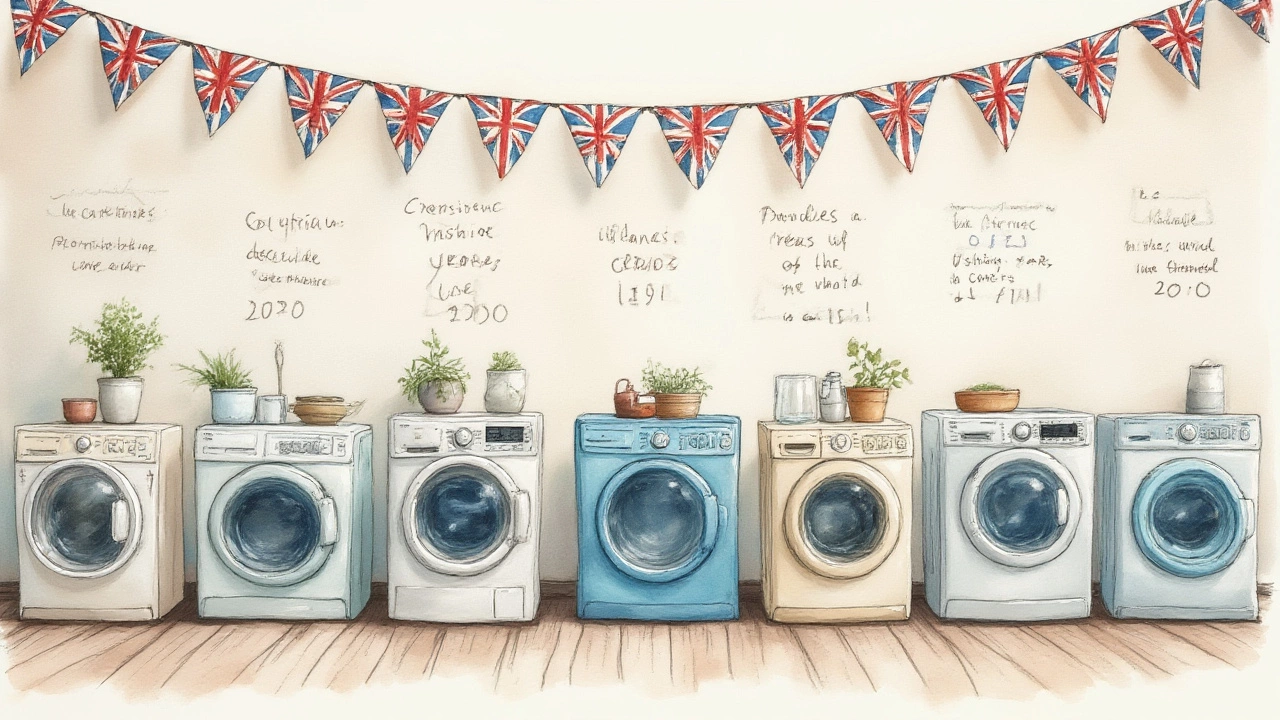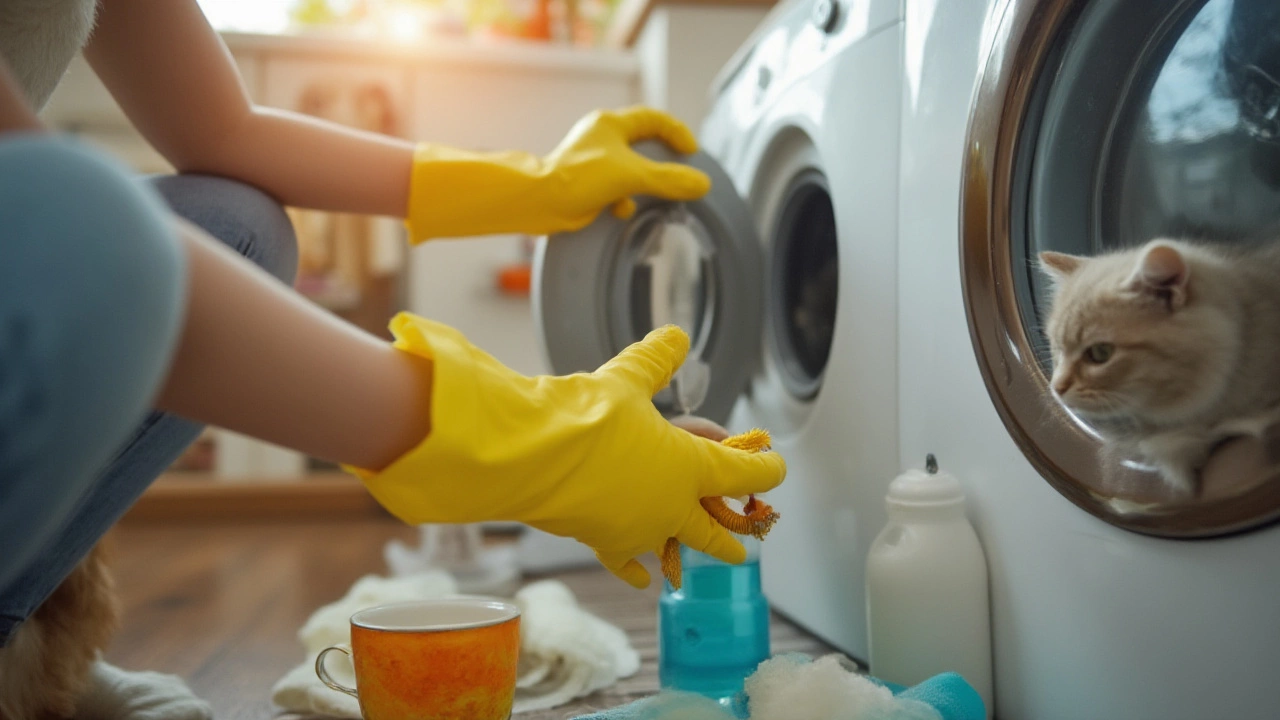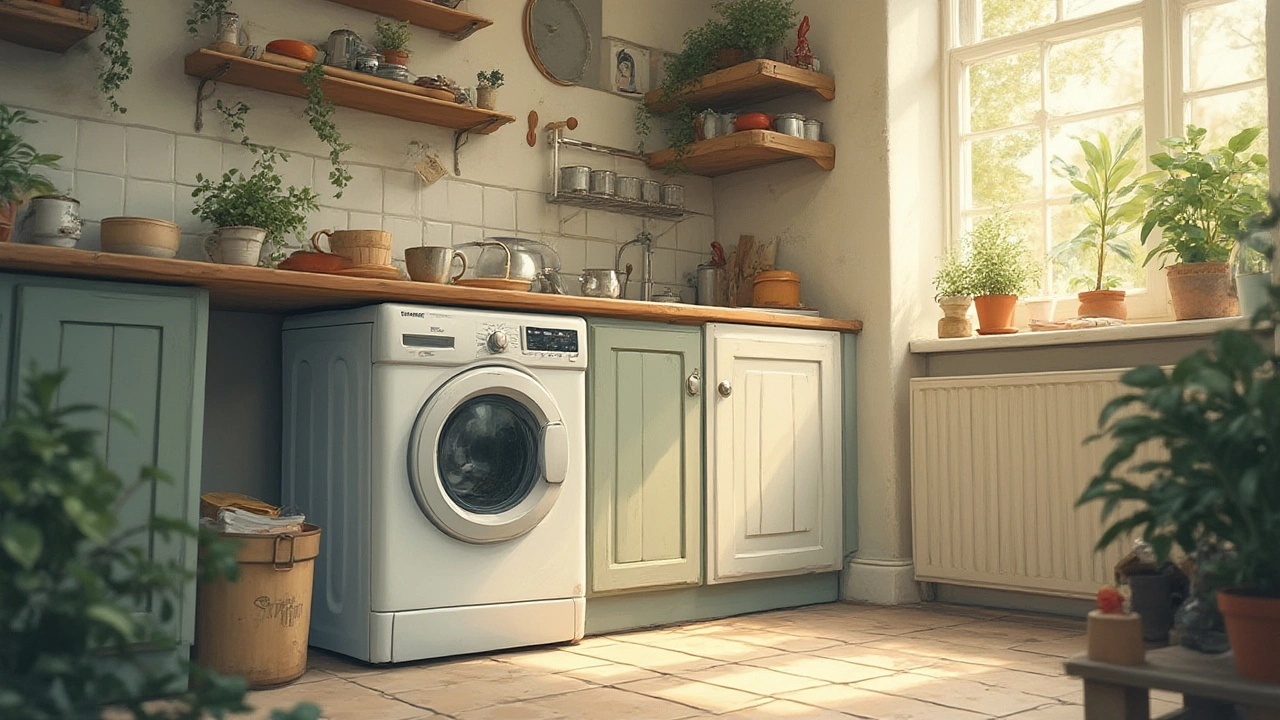Picture this: it's 9 PM, you've got a mountain of laundry to tackle, and your washing machine just groans, sputters, and quits. Not the sort of surprise anyone wants. Most people don't think about their washer's lifespan until it throws in the towel—literally. But there's a real number to how long your trusty laundry workhorse is expected to last, and it might not be what you guess. Diving into industry studies, talking to appliance techs, and checking countless user reviews, you start to see some patterns. But, as with anything you use every week, the exact answer depends on how you treat it, the brand you buy, and even where you live. Ready to face possibly the most underappreciated stat in your house?
What Is the Average Lifespan of a Washing Machine?
If you've heard neighbors complain their washers "barely made it six years," while your aunt's old Maytag survived since 1998, you're not alone. There's a ton of variation out there, and not all washing machines are created the same. According to the United States Department of Energy, the average washing machine lifespan ticks in at around 11 years. That fits right in line with a deep-dive survey Consumer Reports published in 2023, which pegged the sweet spot between 10 and 13 years for most modern models (washing machine lifespan is the stat people are hunting for).
Front-loaders and top-loaders, though, don't always age at the same speed. Front-loading washers generally rank slightly lower for expected years, at roughly 10, but they use less water and can have gentler cycles. Top-loaders, especially old-school ones with traditional agitators, often push a year or two more. If you're buying a washer in 2025, you're unlikely to find a model that consistently lasts more than 15 years—unless you invest in high-end machines and really baby them.
A well-known appliance repair technician, Mike Holmes (famous from his TV home improvement shows), once said,
"You can expect about a decade out of most washing machines these days—assuming you don't overload them and you keep up with routine cleaning and maintenance."That wisdom checks out when you look at thousands of real-world reports: washers that are treated gently and regularly cleaned will easily hit double digits, but those that get overloaded or ignored can start making that deep-rumble noise after just 6 or 7 years.
It's not all wear-and-tear, either. The type of water in your area—hard or soft—can have a bigger impact than you’d expect. Hard water deposits calcium and magnesium, building up on internal components and forcing motors and pumps to work harder than they should. In states like Texas and Arizona, or anywhere with really hard water, even new machines can have shorter runs without a water softener.
Another surprise factor? Power surges and electrical issues. Modern machines have more computers inside than ever, and those sensitive circuit boards can fry in a second if lightning hits the neighborhood or your home's wiring is on the fritz. Surge protectors aren't just for TVs anymore; lots of appliance techs now recommend plugging washers into one if your area’s power grid is unpredictable.
So what's realistic for the average household in the US, UK, Canada, or Australia? You can bet on 8-12 years for a mainstream washer if you run 4-5 loads each week, keep up with basic care, and don't treat it like a laundry dump truck. Frequent family users—parents of three or more kids, for example—might need to shop for a new one every 7-8 years. Single folks who baby their machines have been known to keep a washer humming for 15 years or more. And let’s be honest: sometimes, a machine will throw a curveball your way and break early without warning. But in most cases, the averages don’t lie—10 to 13 years is a safe bet.

Why Some Washing Machines Last Longer (and Why Others Don’t)
Not every washing machine gets to retire after 12 years of loyal service. Some barely make it past their five-year warranty, while others survive three generations of family hand-me-downs. Why such a gap? The answer boils down to a blend of build quality, usage habits, brand reputation, and just plain old luck. Let’s break down what actually matters.
First off, the brand you pick matters a lot more than you might think. Reliable surveys from 2024 show that companies like Miele and Speed Queen absolutely dominate when it comes to lifespan. Miele, the German brand, famously tests its washers to last at least 20 years with average use. But—and it’s a big but—the upfront cost is far higher than the typical Samsung or Whirlpool model. For people buying on a budget, mainstream brands like LG, Whirlpool, and GE are common choices, and they last around 10-12 years on average, based on real repair records. On the flip side, cheaper off-brand or entry-tier models may only coast along for 5-8 years before something critical gives up (think pump failure or electronic board issues that cost more to fix than the machine’s total value).
Build quality is a huge player here. Metal parts—especially stainless steel drums—tend to last longer than plastic ones. Motors with brushless designs (sometimes labeled as “inverter” motors) run cooler and often outlive their traditional counterparts. Brands that invest in high-quality seals, bearings, and pump mechanisms tend to be quieter and last for more washing cycles before needing a tech to come take a look.
But even the best machine will struggle with heavy-handed use. Overloading is the ultimate killer—it strains the motor, chews through belts, and burns out drum bearings faster than normal. If your laundry day always includes stuffing as many towels as possible in one go, don’t expect a long, happy machine life. Washing drippy, heavy items like bathroom rugs or overloaded bedding on repeat nearly guarantees early death for your washer's bearings.
Maintenance is another overlooked secret. Removing lint from around the drum, running monthly self-clean cycles, and leaving the door open to air out the rubber seal does a ton to prevent mold and breakdowns. People who ignore smells and black gunk building up around the door aren’t just dealing with a gross appliance—they’re slowly destroying sensitive seals, which leads to leaks and motor burnout trying to push against extra resistance.
Even small things like the way your washer sits on the floor matter. Uneven floors cause a machine to wobble, which knocks internal parts loose and speeds up wear and tear. Installing rubber feet or a washer anti-vibration pad (sold at most major hardware stores for $30 or less) can save your drum—and your ears—from a noisy demise. Vibration also makes washers "walk" over time, so check placement every few weeks, especially if you hear thudding during spin cycles.
Sometimes, fate plays a role—random part failures are nobody’s fault. But most of the time, longer-lasting machines come down to smart choices and simple habits. And yes, inevitably, price tags and models matter. If you’re in the used market, older machines from the late 1990s to 2010 sometimes have simpler electrical designs that outlast today’s complex electronics—"they don’t make 'em like they used to" rings true for folks who remember the era before touchscreens took over.
So, if you want to tip the odds in your favor, check for brands with solid track records, opt for stainless-steel internals, avoid crushing the drum with every load, and treat your washer to a bit of monthly TLC. With those habits, you’ll stand a great chance at outliving the warranty (and maybe even your neighbor’s newfangled model).

Best Practices to Extend Your Washing Machine's Life
You might think crossing your fingers is the only strategy, but there's plenty you can do to make your washer stick around—year after year. The secret formula? It’s all about steady habits, quick fixes, and catching small problems before they blow up your budget.
Want your washing machine to hit that 10- to 15-year sweet spot? Start with regular maintenance. Every month, run a hot cycle with a washer cleaner or a cup of white vinegar (if your manufacturer says it’s okay) to banish detergent gunk and internal residue. This easy trick kills odor-causing bacteria and helps keep parts running smooth. For high-efficiency (HE) washers, use the right HE detergent—standard soap foams up too much and clogs internal workings faster than you’d expect.
Check and clean the filter (usually near the bottom front of most models) every couple of months. Clothing lint, coins, and hair ties can jam up the drain pump, causing leaks or even full-on electrical failures. Got pets? You’ll find even more hair and dirt lurking in there. Clean it out and save yourself future service bills.
Don’t ignore the soap and softener drawer. Sticky residue from one too many pods or liquids will settle into mold quickly, especially if you close the drawer or keep the washer door shut all the time. Pull the drawer out and rinse it well in warm water, then dry before putting it back. That habit wipes out the worst smells and cuts down on irritants that can settle on your clothes.
Check the hoses behind your washing machine at least once a year. If you see bulges, leaks, or cracks, swap them out—burst hoses are a leading cause of water damage in homes, and heavy-duty replacements cost less than $30. While you’re at it, make sure the connections are tight but not over-wrenched, which can damage threads or split plastic parts.
If you live with hard water, it might be a good idea to invest in a water softener or at least a machine cleaning tablet designed to fight mineral buildup. Calcium deposits actually insulate heating elements in the washer, making heating cycles less efficient and slowly cooking delicate internal wiring. Even if you don’t have hard water, those tablets still help soften and rinse out detergent layers stuck in places you can’t see.
Always follow loading guidelines. Your washer manual will say something like "don't fill past the halfway mark for bulky items." Trust it. Saving time with giant loads now usually means paying for repairs sooner—drum bearings and the motor really don’t like that extra stress. Washing a single heavy item, like a rug or comforter, off-centers the drum. If you do, toss in a few lightweight towels to balance it out.
If your washer starts making any strange noises—knocking, grinding, or sudden stops mid-cycle—don’t wait! Unplug it and check for stuck objects like coins, bobby pins, or kids’ toys. If there’s nothing obvious, call a pro before running it again. Ignoring weird sounds is like ignoring a knock in your car’s engine: you might get away with it for a while, but you’re gambling with the life of your machine.
Another tip: wipe the inside of the door and rubber gasket dry with a towel after every wash to prevent mildew and extend gasket life. Leaving the door cracked open between uses helps fend off the classic musty smell and saves you the hassle of future deep cleaning. Smell something foul? There are specialty washing machine fresheners for sale, but sometimes a simple baking soda soak and rinse will do the trick.
Finally, treat your washing machine as the machine it is—not an indestructible beast. Don’t slam or yank the door open, and avoid jerking the controls. The computers and switches inside today’s washers are sensitive to rough handling. A little patience when programming or opening/closing the lid or door goes a surprisingly long way.
To wrap up, every washing machine has an expiration date, but a little bit of regular care (and not abusing the thing every weekend) can extend that "good for" period past the average mark. Treat your machine right, and it’ll keep churning out fresh laundry—no late-night breakdowns, fewer smells, and way fewer repair bills. And honestly, if you keep it up, you might be the one bragging about your fifteen-year-old washer on the block someday.


